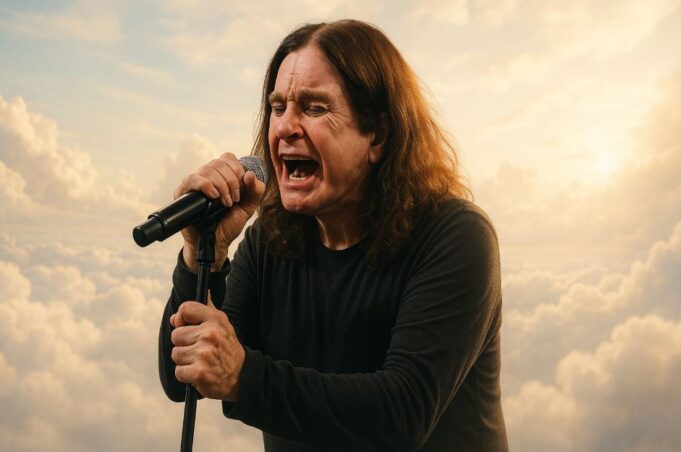It’s a sad day for rock as the world mourns the legend that is Ozzy Ozbourne…
A titan of rock music who redefined the genre with his voice, charisma, and unapologetic spirit. Known as the “Prince of Darkness,” Osbourne captured hearts and shattered norms as the frontman of Black Sabbath, cementing his place in music history.
With his passing, both his legacy and his battle with Parkinson’s disease come sharply into focus, offering an opportunity to reflect on his resilience and the broader realities of living with this profound condition.
A Trailblazer in Rock
Few figures in music have had as seismic an impact as Ozzy Osbourne. From pioneering heavy metal with Black Sabbath to his wildly successful solo career, his influence on the genre is immeasurable. Osbourne’s signature vocals and darkly poetic lyrics gave voice to an entire generation of fans searching for something raw and real. Albums such as Paranoid and Blizzard of Ozz remain landmarks in heavy music, inspiring countless artists and solidifying his status as a cultural icon.
Osbourne was more than a musician. He was a survivor. Known as much for his wild lifestyle as for his music, he weathered storms of addiction, public scrutiny, and personal trials, always emerging with a determined, larger-than-life presence. His resilience became his hallmark—none more evident than in his latter years as he faced Parkinson’s disease with remarkable candor and courage.
A Life Touched by Parkinson’s Disease
Diagnosed in the early 2000s, Ozzy’s battle with Parkinson’s disease became public knowledge in 2020. Parkinson’s is a progressive neurological disorder that affects movement and coordination, caused by the deterioration of dopamine-producing cells in the brain. Symptoms can vary but often include tremors, stiffness, slow movement, and balance issues.
For many, the physical impact of Parkinson’s disease is only part of the challenge. Ozzy bravely spoke about the emotional toll—a constant companion to the physical symptoms. The condition can lead to depression, anxiety, and a loss of independence, as previously simple actions—walking, writing, or even speaking—become daunting tasks. Despite these challenges, Osbourne remained a beacon of perseverance, continuing to engage with fans, work on new projects, and share his truth with the world.
Raising Awareness Through Transparency
Ozzy’s openness about his condition played a pivotal role in raising awareness of Parkinson’s disease. He put a face and voice to the struggles many endure in silence. By sharing his experience publicly, he not only amplified visibility for the disease but also helped break stigmas, encouraging others to seek support and advocate for research and treatments.
His example highlighted the evolving narrative around Parkinson’s. Today, with no known cure, treatment focuses on managing symptoms and improving quality of life. Continued advocacy and awareness, such as Ozzy’s heartfelt admissions, are crucial in driving funding for research and fostering community support.
A Legacy Beyond Music
Ozzy Osbourne’s legacy transcends his music. He symbolized defiance in the face of hardship and an unyielding passion for life. His music will endure, pulsating through speakers and electrifying audiences for generations to come. His bravery in confronting Parkinson’s disease will continue to inspire, sparking conversations that lead to better understanding and compassion.
Goodbye, Ozzy. You’ve given us more than music—you’ve given us courage. May your voice forever echo in the halls of rock history.













